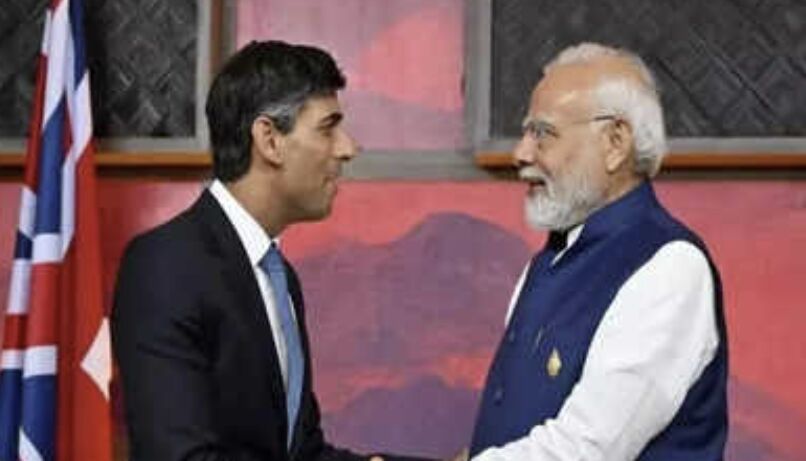UK Stands Firm on Immigration Goals: No Compromise in Trade Talks with India
The UK maintains its commitment to reducing net migration in trade talks with India, despite hopes for a free trade deal. Both sides aim to find mutually beneficial solutions while maintaining immigration policies.
Despite growing optimism that a free trade deal between Britain and India could be reached this year, the UK has no intention of altering its approach to reducing net migration in order to secure the agreement. This statement was made by the spokesperson for Prime Minister Rishi Sunak, emphasizing that there would be no changes to immigration policy, including student visas, as part of the trade negotiations. Trade Minister Kemi Badenoch had previously stated in June that Britain would consider temporary business visas as part of the talks, but not broader immigration commitments or access to the UK labor market for Indian workers.
Interior Minister Suella Braverman had also raised concerns about the possible impact of Indian migrants in trade talks, expressing reservations about open borders migration policies. However, India's High Commissioner to Britain, Vikram Doriaswamy, clarified that India was not seeking more visas, as suggested by the British press. Instead, India was focused on finding simpler ways for companies to move Indian and UK nationals between the two countries. Prime Minister Sunak, who is due to attend a G20 summit in India, has assured his ministers that negotiations are progressing, but he emphasized the need for an approach that works for the entire UK.
The remaining topics to be discussed in the trade talks are expected to be challenging, but both sides are said to agree on the broad contours of the proposed trade pact. In conclusion, while a free trade deal between Britain and India appears promising, the UK remains committed to its net migration reduction goals and will not compromise its immigration policies as part of the agreement. The focus of the negotiations will be on finding mutually beneficial solutions for both countries without allowing unrestricted migration.




